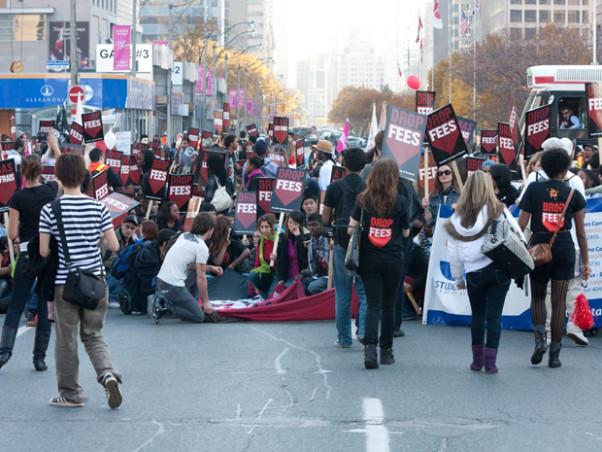By Alexandra Bosanac
Returning students may have noticed that their account balances are higher than last year. Some students will pay about $200 to $300 more.
In April, the Board of Governors voted in favour of a 4.5 per cent fee increase for returning students and a five to eight per cent increase for new students.
Returning international students can expect to see a five per cent increase, while, due to a lack of regulation in international student fees, new international students enrolled in MBA programs will pay 25 per cent more than last year.
The fee increases — which outpace the rate of inflation while Ryerson’s enrollment and retention numbers remain strong — are simply Ryerson’s reaction to government policy, said Janice Winton, Assistant Vice President of Financial Services via email.
The province’s funding for post-secondary institutions has shrunk from $6.2 billion to $310 million following last year’s expiration of the Reaching Higher framework.
With the province intent on paying down its $25 billion deficit, another formal funding commitment like Reach Higher may be slim.
“Universities needs to find revenue to maintain existing infrastructure and fees are a major source of revenues,” said Constantin Angyridis, a Ryerson economics professor. “I don’t see a reduction in fees anytime soon.”
According to NDP education critic Rosario Marchese, high tuition fees are creating a sociological crisis.
“After graduation, students make a lot of decisions — where to move to? Can we afford to have a family? Where should we buy, or, in the case of Toronto, rent a house?
Debt levels involve all those questions, these are tough questions no one [in parliament] is asking.”













Leave a Reply